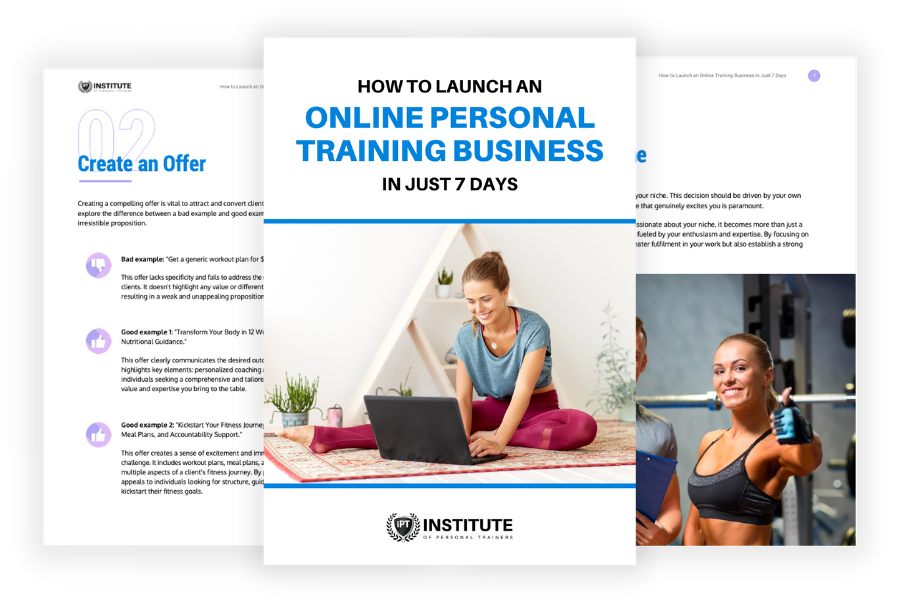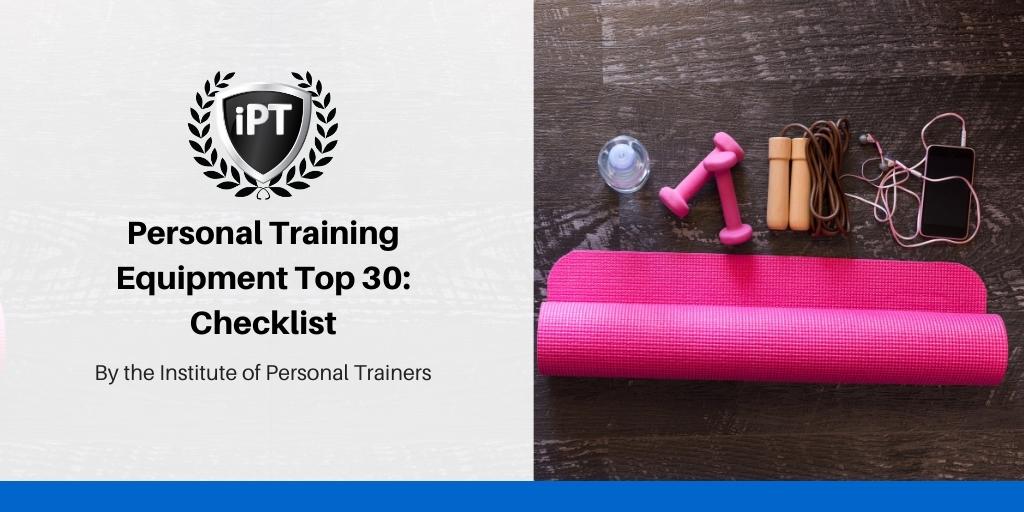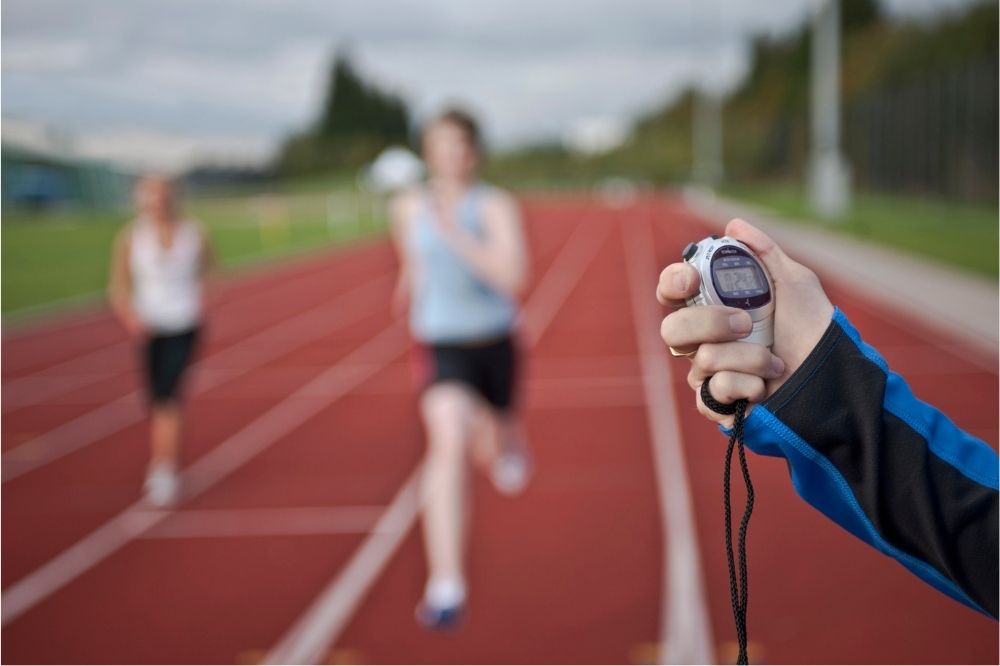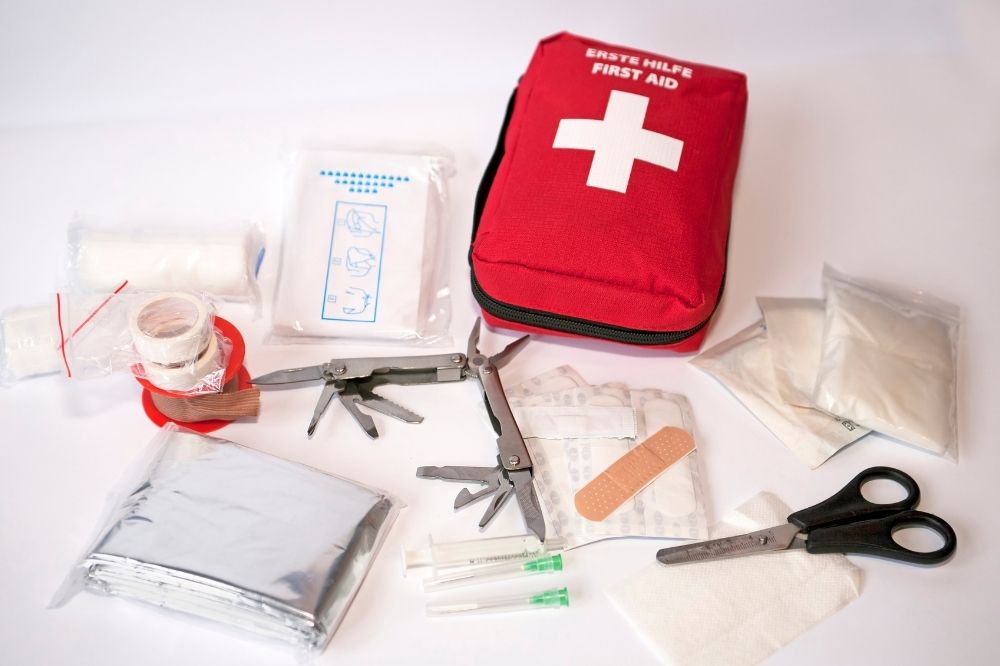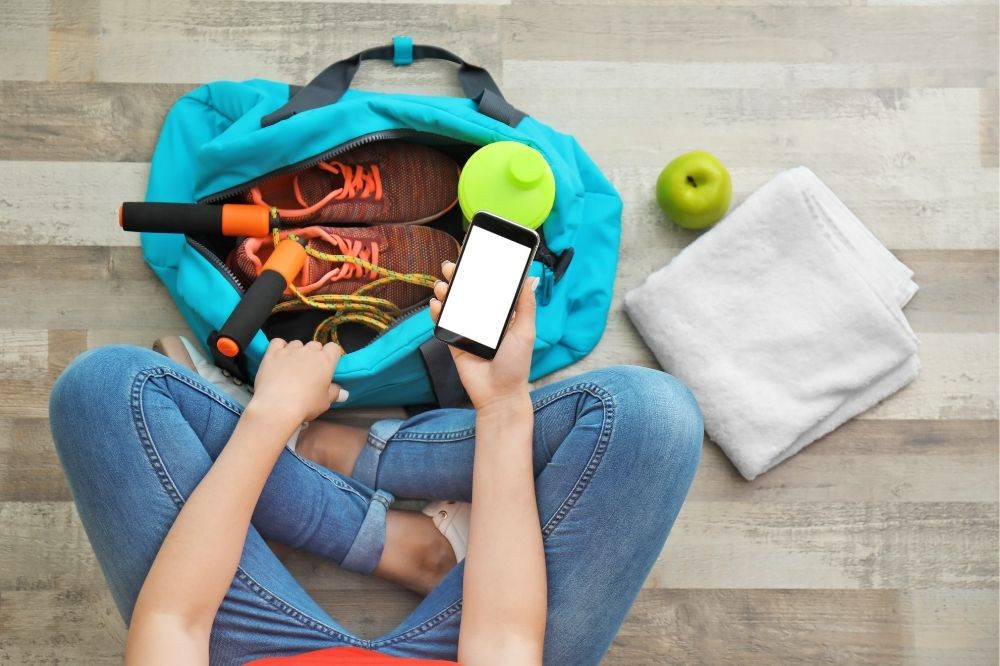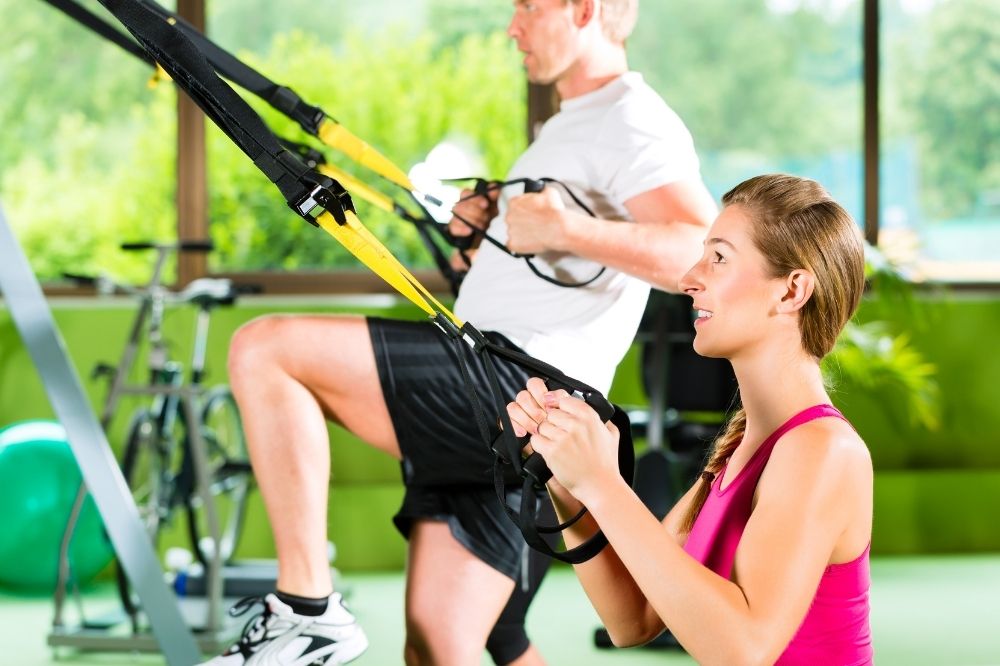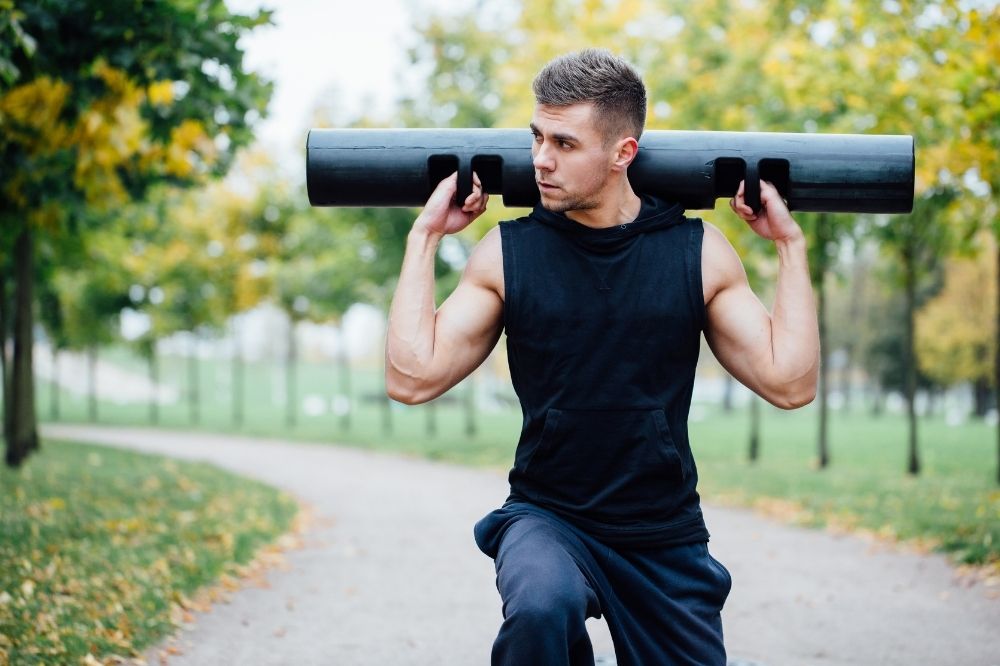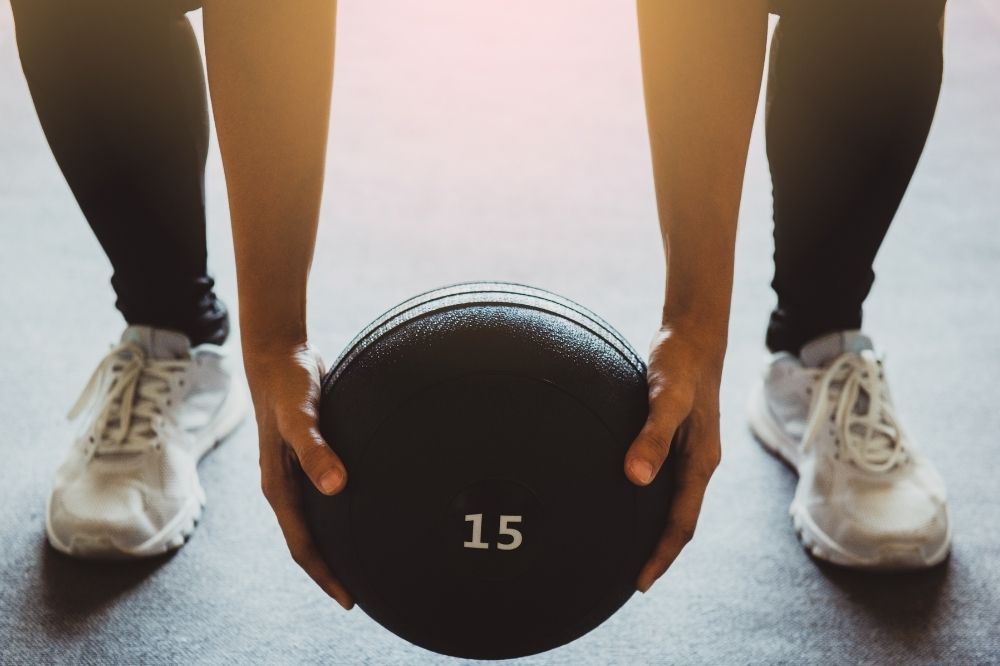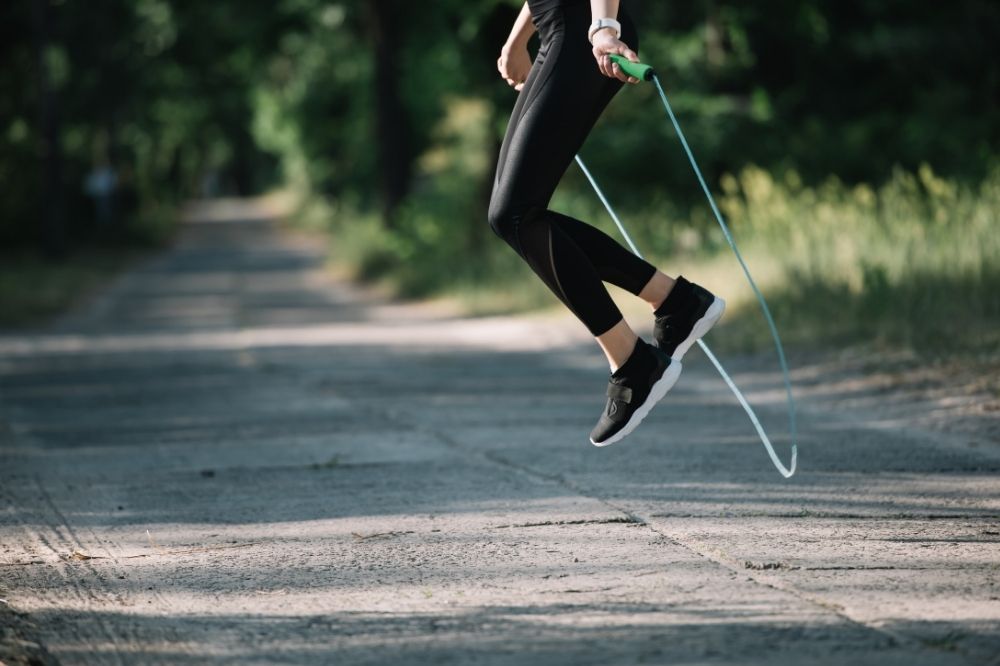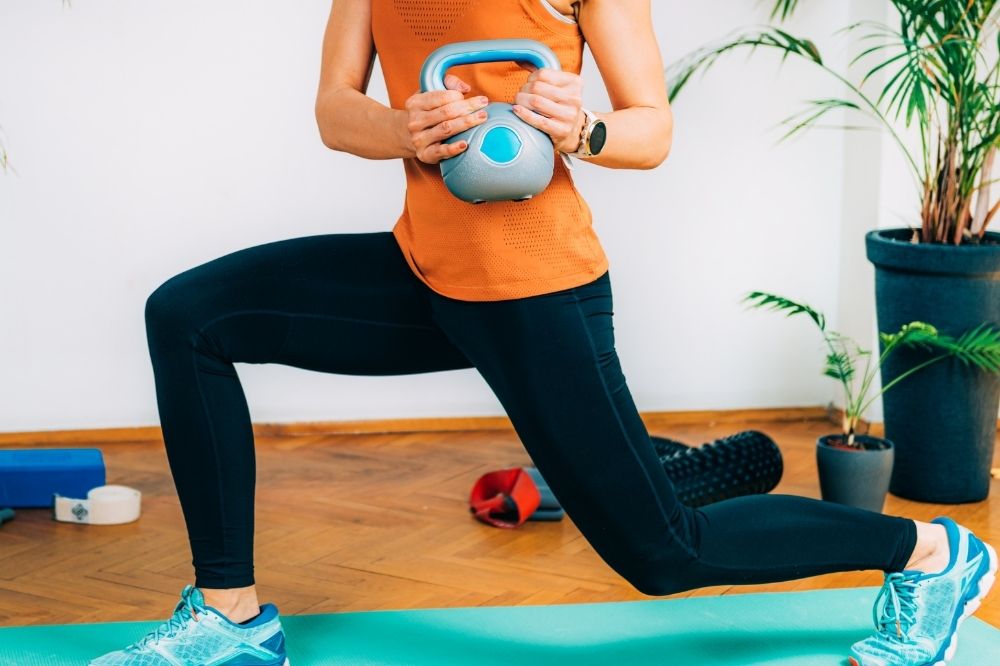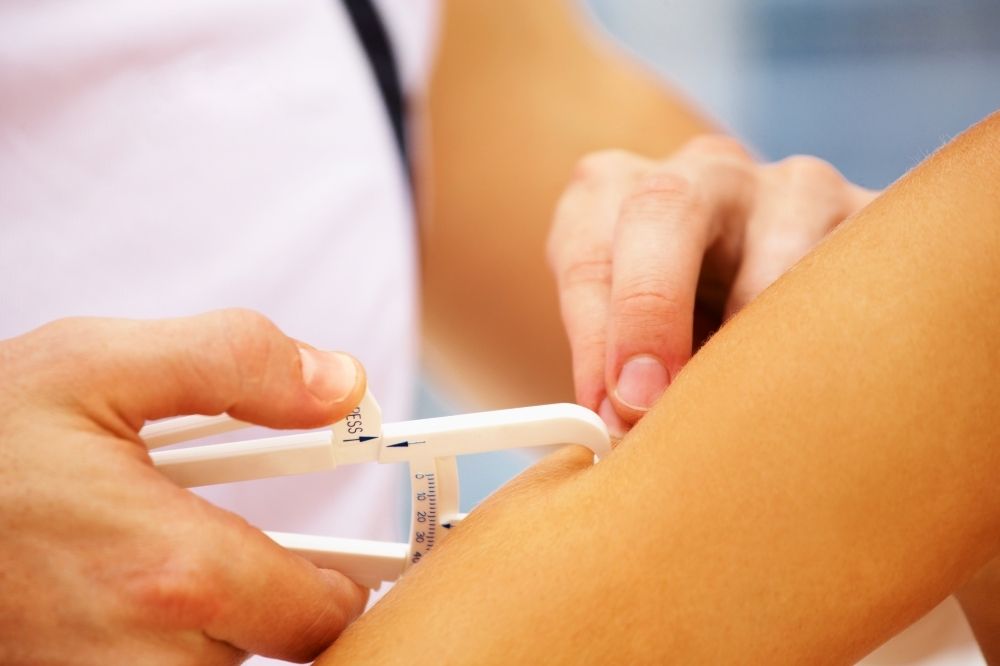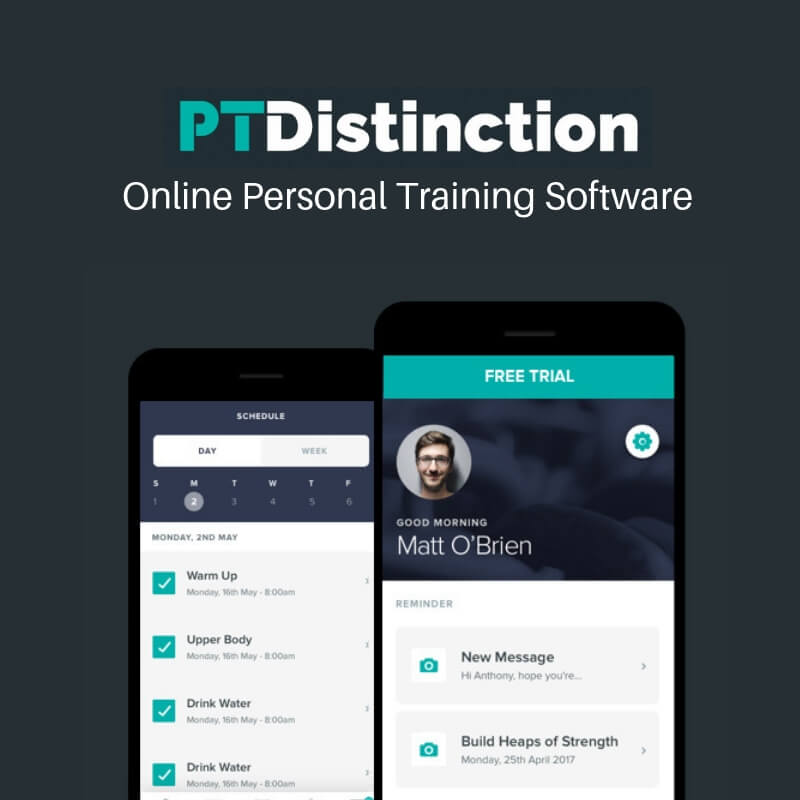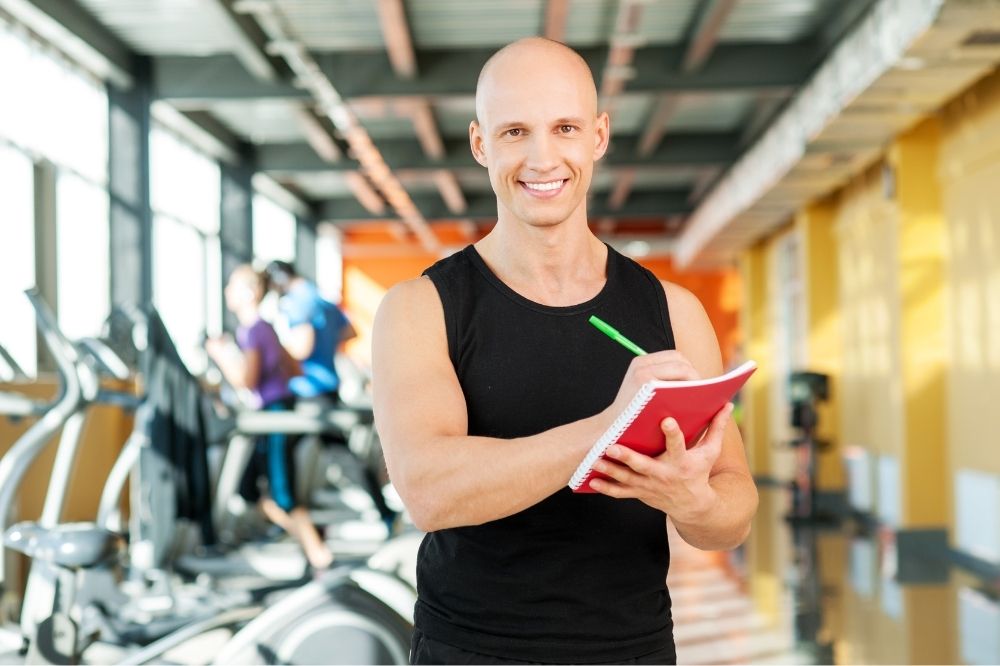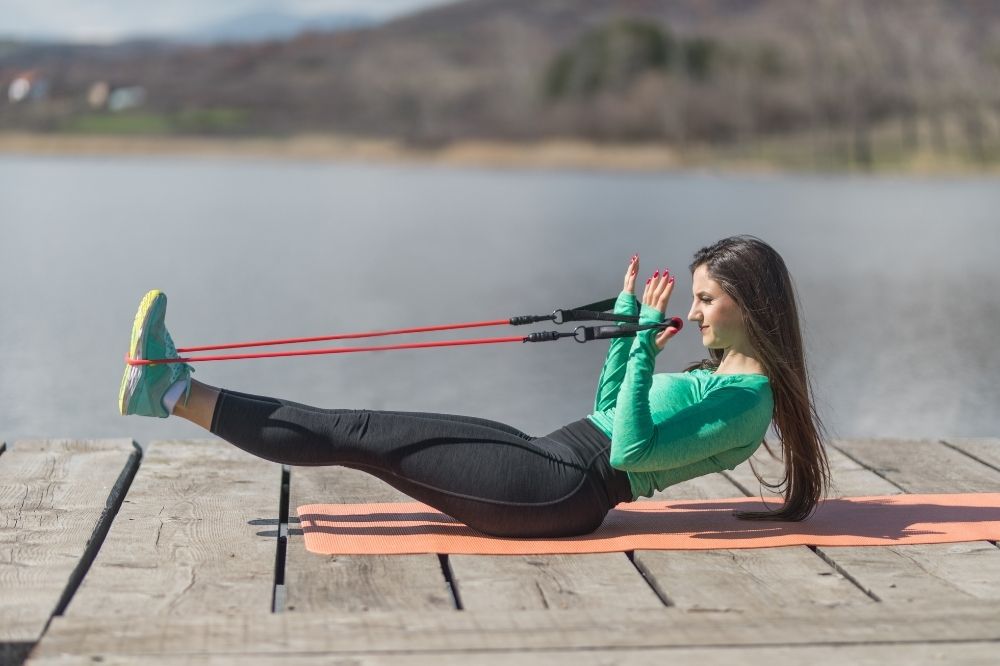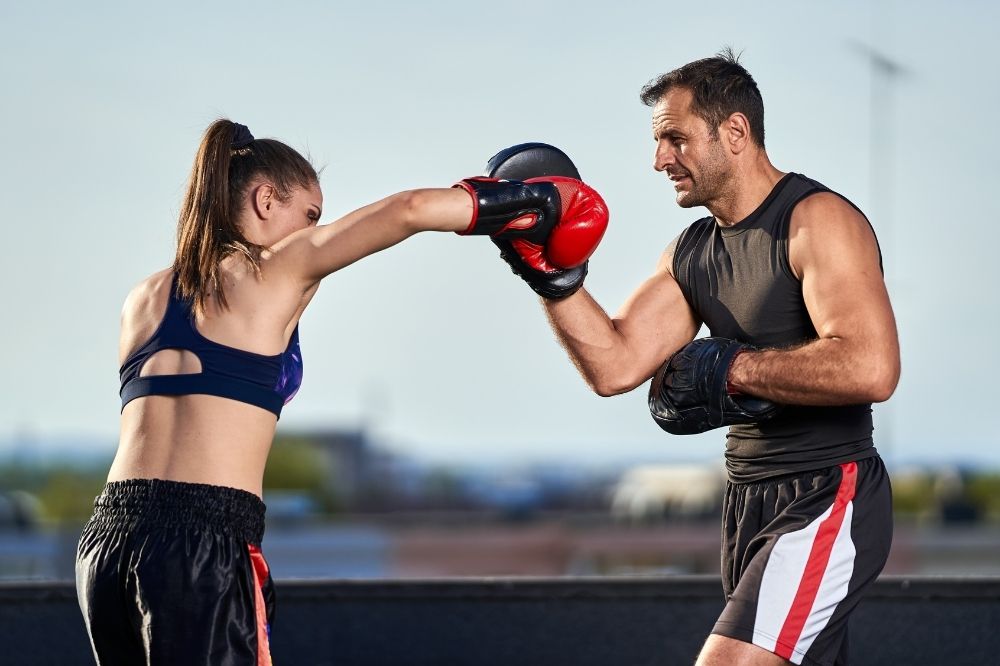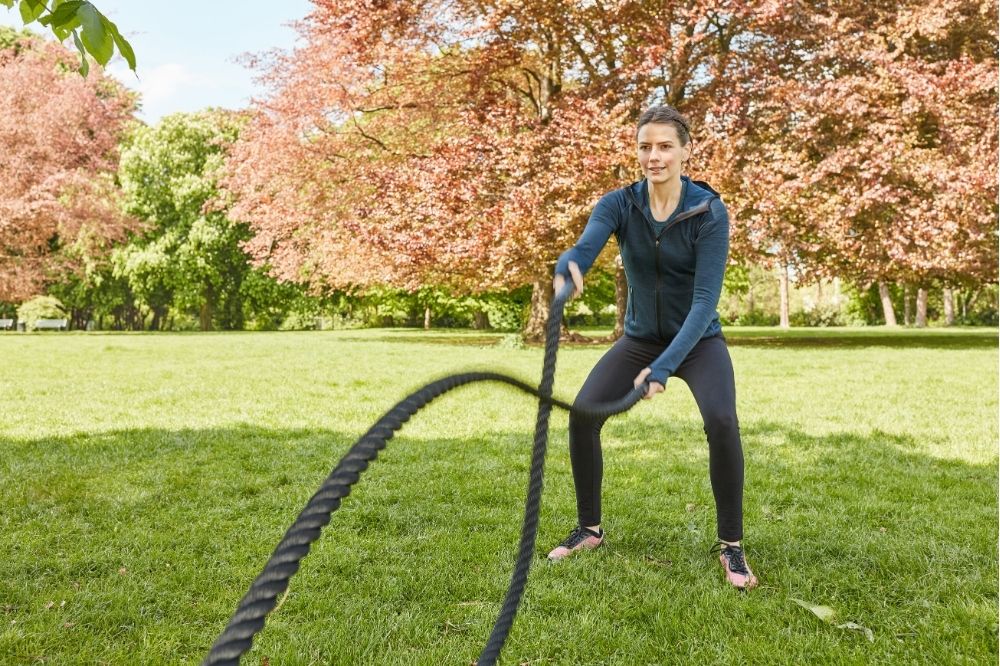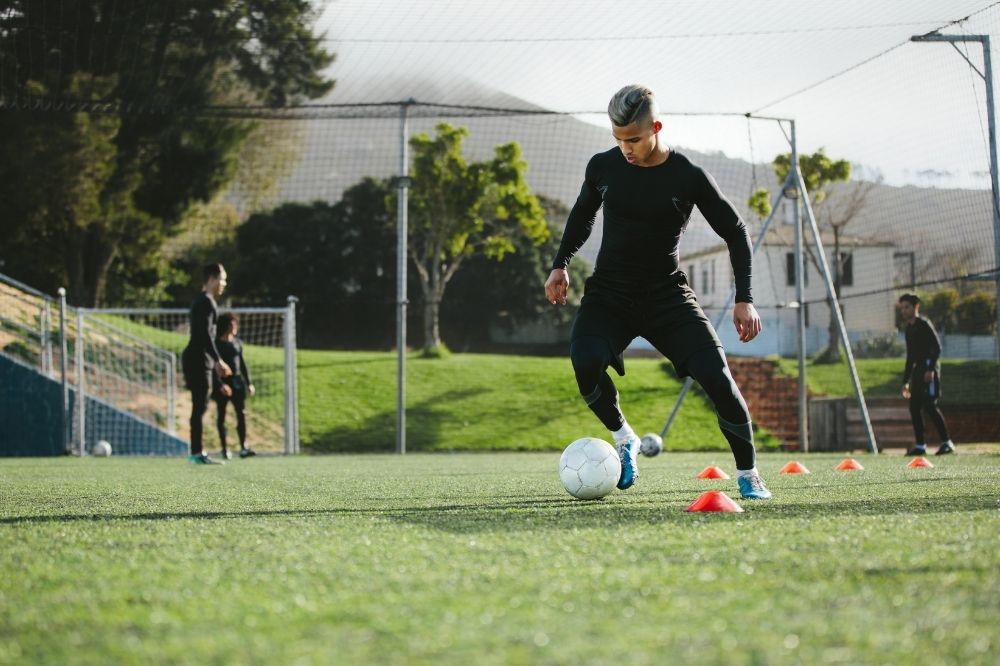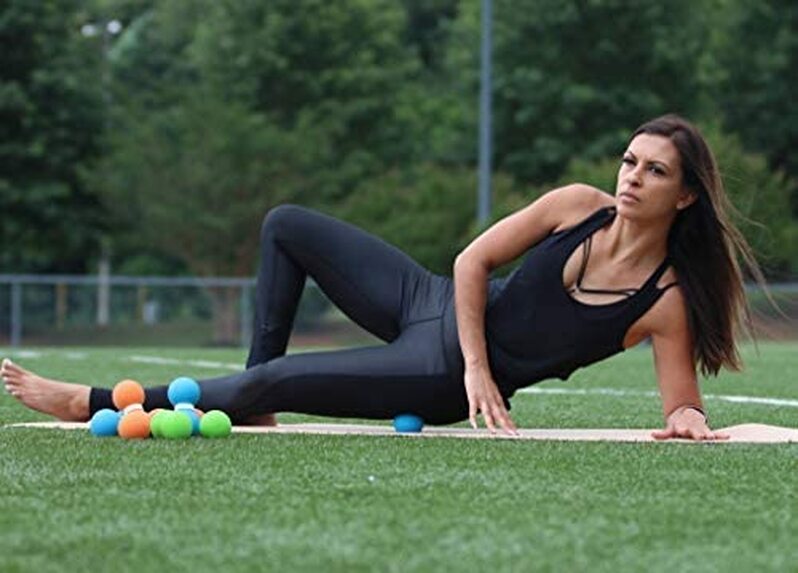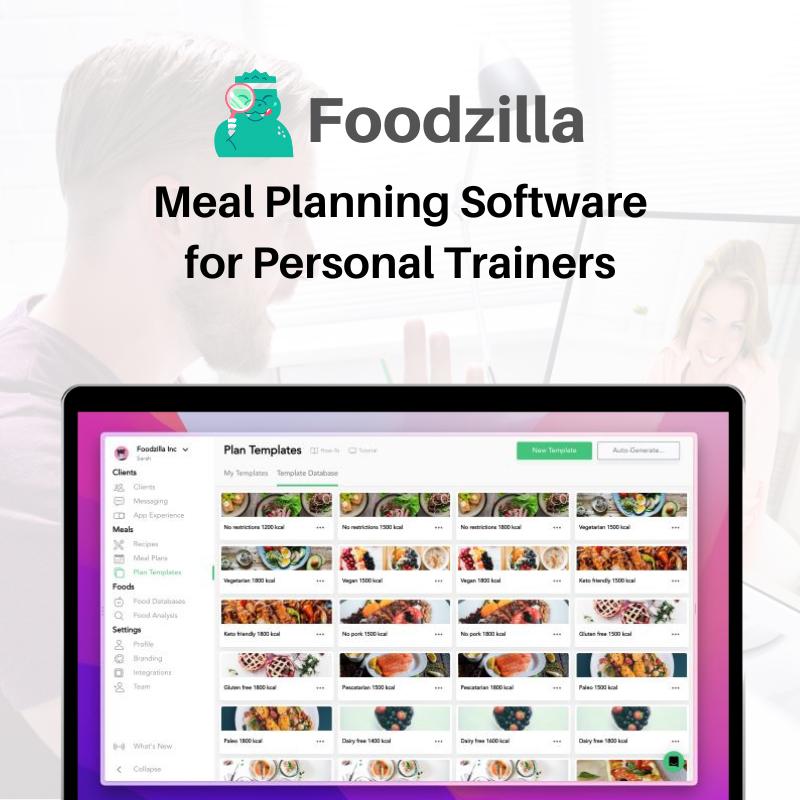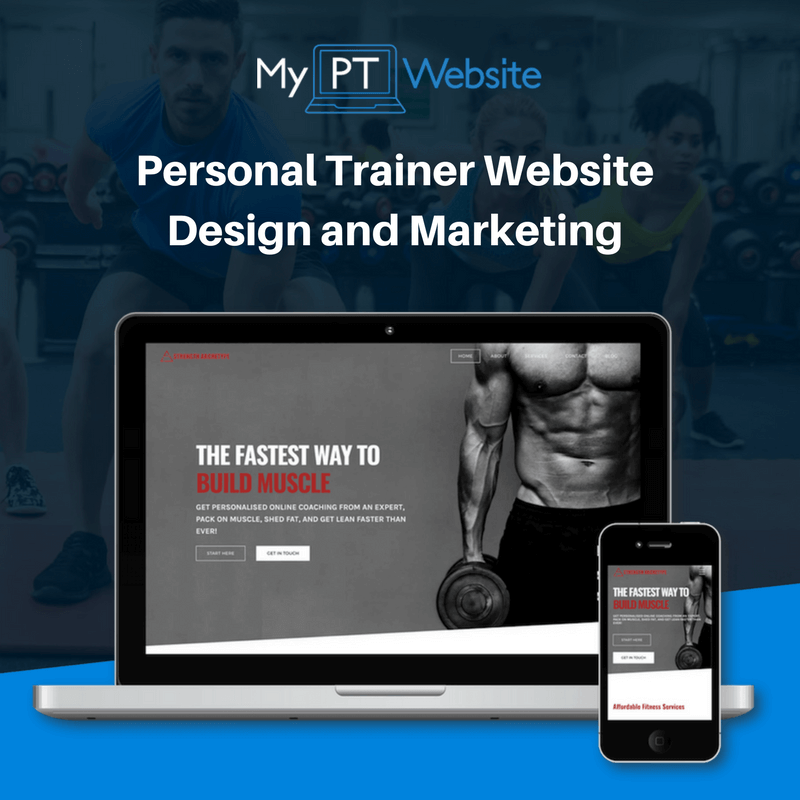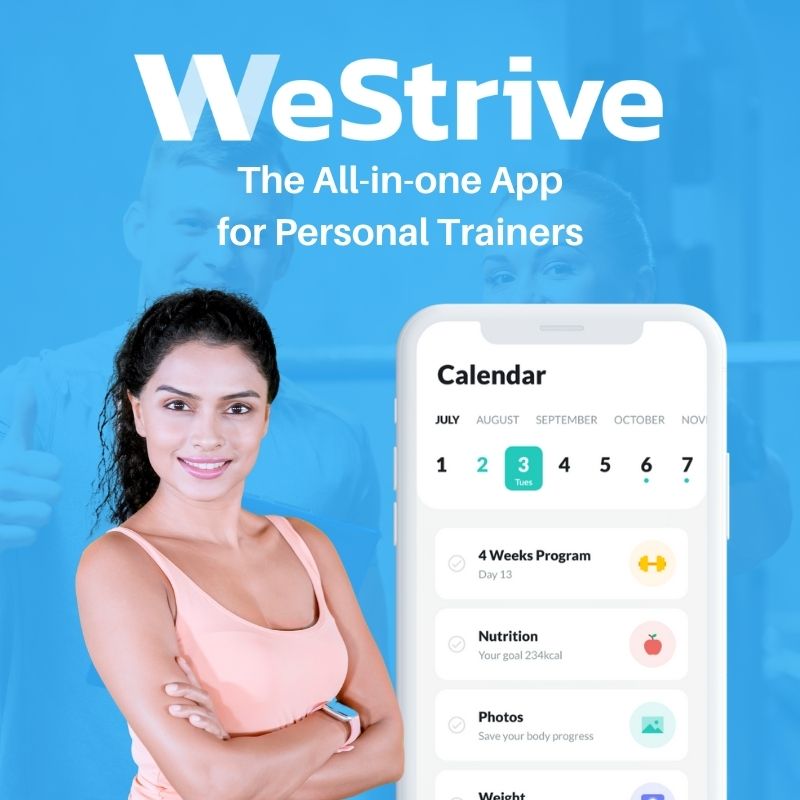|
FREE GUIDE: HOW TO LAUNCH AN ONLINE PERSONAL TRAINING BUSINESS
IN JUST 7 DAYS
✓ The new, better way of launching an online business
✓ The fastest way to create in irresistible offer ✓ A simple system to sell to clients who are interested |
|
Want to PT at home? Personal trainer equipment can be expensive - and heavy! Often, as a personal trainer, you’re dashing from one place to another. Training clients in their homes, outdoors, or at multiple gym locations. Equipment for personal training can be different, or limited in these places, and so you might decide to invest in your own to ensure you always have the equipment you need to provide an exceptional standard of service and be the best personal trainer you can be for your clients. This top 30 looks at the most essential personal training equipment so you are prepared no matter where you have clients or what the conditions call for. 1. Client Logbook Keeping a written record of what your clients achieved in their last session, and in their last phase removes the cognitive load from you as a trainer. You don’t have to have a conversation about “what did you do last time?” and if you keep it on paper, you’re not having to keep your phone out - which means you can give your client your undivided professional attention. Get a client logbook on Amazon 2. Client Forms This contains everything you learned about your client during their consultation. Their personal details, any exercise limitations and an explicit reminder of their training goals. It’s the document you’d refer to if you had questions about exercise history or injuries, and you’d keep it with their training programme. Get your personal trainer forms here 3. Stopwatch This looks more professional than using your phone to time activities. It’s clear what you’re using it for, it’s simple and almost indestructible. If you train clients outdoors, you’ll want to leave that expensive phone in your pocket until it’s time to take that heroic “after” photo for social media. Get a stopwatch on Amazon 4. First Aid Kit If you’re working inside a gym, you will probably already have access to this. They aren’t as well maintained as you might hope though and in an emergency, you want to be absolutely certain you have everything you need. Get a First Aid Kit on Amazon 5. Kitbag This one is obvious - you’ll need a way to transfer all your personal training equipment to and from the training location. A great big bag is the easiest way to do that… but do make sure you can lift it, once it’s full! Get a kitbag on Amazon 6. Suspension Kit This is a way to use your client’s own body weight as resistance and for clients with disabilities or balance problems it can be a fantastic way for them to develop both strength and skill. Some gyms will already have a TRX style kit, but it’s easy to transport and can be attached to a pull-up bar or rig in seconds. Get a suspension trainer on Amazon 7. Balance Ball This is in the gym section rather than the home training section because when left inflated, they’re pretty big and take up a fair bit of space. You can deflate these between sessions for easy storage. Great for core strength and very cost-effective. Make sure that if you buy one of these it comes with a pump. Get a Balance Ball on Amazon 8. VIPR If you don’t have access to a barbell, this is a fantastic alternative. Much lighter and shorter than a bar for easy transportation, it provides a whole-body workout and requires concentration and coordination to use. Advocates of this bit of equipment for personal training say it can get them into a flow state, much like using a steel mace. Get a VIPR on Amazon 9. Wrist Straps These are small enough that they can stay in your gym bag all the time, and your clients might not think to bring their own. Useful if your client gets wrist pain during extension exercises like push-ups, or discomfort when pressing overhead. They are also useful if grip fails on heavy lifts and your gym doesn’t allow chalk. Get wrist wraps on Amazon 10. Med/Slam Balls These are small so won’t take up a lot of space in a home gym and come in a wide range of weights. If you use the hard rubber balls, make sure you don’t slam them - or they will bounce. Only the soft ones can be slammed. Perfect for throwing, catching, or simply as a weight. Get Med/Slam Balls on Amazon 11. Step/Box The steps are small and can often be taken apart for storage when not in use. Plyo boxes are different heights depending on which side they’re stood on and so are effectively 3 boxes in 1. Get steps and boxes on Amazon 12. Skipping Rope Moderate impact through skipping can strengthen bones and improve coordination. This is almost an essential piece of equipment, as it delivers agility, balance, coordination, conditioning and weighs almost nothing. Get a skipping rope on Amazon 13. Kettlebell One of the most flexible pieces of equipment on this list, and essential for resistance training at home. A kettlebell gives a dynamic workout with an almost unlimited range of movement options and can be used even in the tiniest home. Available as adjustable models, or single weight cast iron. Get a Kettlebell on Amazon 14. Slip Plates These 2 sided discs can be used on both carpet, and hard flooring. They make bodyweight movements more challenging as they add an element of challenge because of the increased core stability needed. Get slip plates o Amazon 15. Wall Timer Useful if you regularly assess your clients in your own space, on the same benchmarks for improvement, particularly on tasks where they perform the same volume of work (such as a mile run) and the goal is to get faster. Get a wall timer on Amazon 16. Blood Pressure Cuff High blood pressure is incredibly common, and the ability to take an accurate reading could save your client’s life. This is a good starting point for clients that have identified hypertension as a concern, especially before asking them to do any intense exercise. Get a blood pressure cuff on Amazon 17. Callipers Used to assess body fat, this equipment - and the ability to use them accurately - is an essential piece of equipment for any personal trainer that offers body recomposition or physiological transformation as part of their service delivery. Get callipers on Amazon 18. Personal Training Software Some method of tracking your client’s progress through software is both a smart way to stay organised and a motivational tool for your client. PT Distinction is a great option, and you can get a detailed overview here. Check out PT Distinction here 19. Notebook If using software is not your thing, or out of the budget at the moment, having a physical pen and paper notebook will allow you to keep a record of the essential aspects of your client’s session without having to record this on a tablet or your phone. You can record the exercises performed, details about sets and reps, and how hard your client found the session. It’s a useful way to discreetly jot down any details they mention during the session too, about important events or milestones coming up. You can send cards, or remember to ask about them next time. Get a notebook on Amazon 20. Resistance Bands These are the cheapest and easiest to transport method of adding resistance to a training session. They’re small enough that they can fit in a pocket, and come (usually) in 5 levels of resistance. For someone new to training, they’re challenging exercise. For someone more experienced, they’re useful to warm up and rehab. Get resistance bands on Amazon 21. Exercise Mats Depending on where you’re training your clients, a mat is going to give them protection against a hard floor and keep their joints safe when getting up and down off the floor. They roll up, weight next to nothing and usually come with carrying straps for easy transportation. Buy exercise mats on Amazon 22. Dumbbells Although potentially heavy, these are a flexible piece of equipment that can be carried easily provided you don’t have many of them. Small enough to be transported, and extremely useful as part of circuit training. Get dumbbells on Amazon 23. Boxing Pads/Gloves Clients will often have their own gloves (and that’s probably best, for hygiene) but boxing pads are a great addition to partner sparring. A fun way to include hand to eye coordination, drills, and partner work into a training session. Buy boxing gloves and pads on Amazon 24. Battle Ropes These are surprisingly flexible once you get past the traditional up-down, side-to-side options. Odd objects for squatting, pressing and team workouts - provided you can be a little creative, these are a great option. Get battle ropes on Amazon 25. Wreck/Sand Bag Sometimes called a sandbag, these are a safe, soft alternative to barbells, and an easier to transport option than bulky sandbags. Available in a wide range of weights, they are great for traditional strength work as well as more dynamic movements. Get sandbags on Amazon 26. Marker Cones An absolute essential for any Bootcamp, these are cost-effective, take up almost no room and are more flexible than using landmarks for your Bootcamp. Lay them out before class starts, and use them as a warm-up, for games as a finisher, or as part of the workout itself. Bu marker cones on Amazon 27. Foam Roller A foam roller is an amazing tool to relieve the aches and pains your clients regularly complain about. Not only is it a cheap and simple way to teach your clients to self massage but it's also a great idea for a gift. Buy a foam roller on Amazon 28. Massage Ball When the foam roller isn't quite enough, sometimes you need to bring out the massage ball. A massage ball is typically hard and grippy so that your clients can lean or lay on them to work on muscular aches and pains. Get a massage ball on Amazon 29. Chalk If you have clients that lift heavy regularly then lifting chalk can be a massive help in terms of improving grip on the bar and getting those big personal records. Liquid chalk is best if you work in a gym settings as it makes the least amount of mess. Buy chalk on Amazon 30. Lifting Straps When the chalk is no longer working and your clients strength exceeds their grip, only lifting straps will do. A good pair of lifting straps can help your clients pull bigger weights while getting less sores on their hands. Buy lifting straps on Amazon Summing Up Personal trainer equipment needs to have a few qualities. Possibly most importantly, it needs to work for the population you train, and in that sense be a functional part of your toolkit. For example, if you work primarily with strongman competitors, a few 2kg dumbbells aren’t going to be functional for them. Whereas they might work if you pt at home.
Secondly, it needs to be good value for money. Personal training equipment tends to get used pretty hard, so it need to be able to take some trough use and if you’ve paid a lot for it, you might be worried about it getting damaged or broken. If you need to replace it quickly, it shouldn’t be a massive expense that needs to be saved for. Finally, it needs to be portable. Even if you’re training in the same location, you’ll still be carrying it home with you. So be mindful of the total weight of all your training equipment and how manageable it is to transport the kit in its entirety. |
Our All In One Platform
Check out out all in one business & marketing platform for personal trainers!
WEBSITE BUILDER | FUNNELS |MEMBERSHIPS | SCHEDULING| EMAIL MARKETING| PAYMENTS| CRM | AI ASSISTANT | SURVEYS
Popular Articles
Trusted Partners
We work closely with some of the best service providers in the fitness industry.
Categories
All
|

